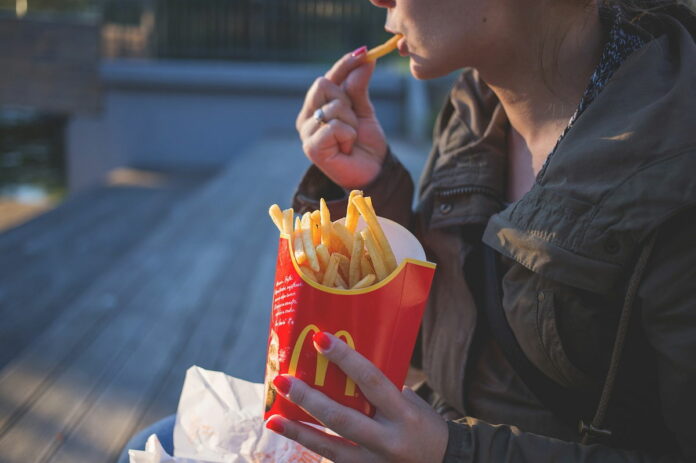
Credit: Pixabay.
The UK government has revisited plans to ban junk food advertisements aimed at children before the 9pm watershed. The decision is to go ahead from October 2025.
This move, part of a broader public health drive, seeks to curb childhood obesity by limiting exposure to ads for products high in fat, salt, and sugar (HFSS). Online junk food ads will also be restricted entirely, as the country takes a firmer stance on unhealthy food marketing.
UK’s childhood obesity rates
The UK’s childhood obesity crisis is staggering: over 20 per cent of children are overweight or obese by the time they enter primary school, and this number climbs to more than a third by the time they leave. These statistics align closely with figures from the World Health Organization’s European Childhood Obesity Surveillance Initiative, which reported that 29 per cent of children aged 7-9 in 33 European countries were overweight between 2018 and 2020.
Public Health Minister Andrew Gwynne has made it clear that this ban is part of a broader strategy to reduce preventable illnesses, which are placing significant strain on the NHS. In fact, many argue that the UK’s free healthcare system is in dire need of reform, especially as it grapples with budget constraints and rising demand. By tackling childhood obesity, the government hopes to lessen the future burden on the NHS.
However, some critics believe that restricting ads before 9pm is not going far enough. Many children will still be awake after 9pm.
One of the most contentious aspects of this policy is the tension between public health and business interests. Critics of the government, including some from within the Conservative Party, have accused previous administrations of prioritising the profits of big business over the health of children. Both Boris Johnson and Rishi Sunak delayed the introduction of this ban, with Sunak pushing it back to 2025, sparking widespread criticism from health advocates.
Bans on junk food advertising aren’t new. In fact, countries like Norway, Quebec, and Sweden have banned all advertising during children’s television programming for years. In these nations, limits on junk food marketing have been shown to slow the rise in childhood obesity rates, although they haven’t eradicated the problem entirely.
What do junk food producers have to say about the ban?
Some businesses are arguing that they need time to adapt to these regulations, particularly in the context of the ongoing cost-of-living crisis. In an era where inflation is pushing up prices for basic goods, they claim that the advertising restrictions could hurt both companies and consumers by increasing costs. Some argue that these bans could disproportionately affect smaller food producers who rely heavily on advertising to compete with industry giants.
On the other hand, health advocates, such as James Toop of Bite Back (a group linked to celebrity chef Jamie Oliver), argue that these measures are long overdue. Toop asserts that the “more junk food ads you see, the more unhealthy food you’re likely to consume,” highlighting the importance of limiting exposure to such advertising.
Will the ban on junk food ads lead to real change?
Perhaps the real issue lies in the wider societal factors driving childhood obesity, from easy access to unhealthy foods at home, to the lack of comprehensive health education in schools. Tackling the root causes of this epidemic will require far more than just regulating TV ads. It will take a concerted effort from governments, businesses, and communities across Europe to create an environment where children are encouraged to make healthier choices.
It will be interesting to see whether other EU countries follow the UK’s lead or continue to rely on self-regulation. What are your thoughts on the decision? Do you think the ‘out sight, out of mind’ approach will help? Or is it more about food education that starts at home and is learnt at school? Let us know in the comments below.


